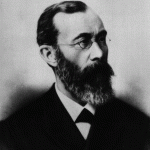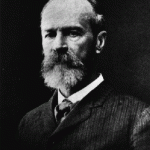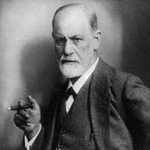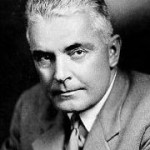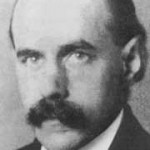 “Psychology has a long past but only a short history.” With these few words, Hermann Ebbinghaus, one of the great thinkers in psychology, aptly captured the essence of this field’s development. Since time immemorial, men and women have pondered over questions that are psychological in nature. From the early Egyptians to the ancient Greek philosophers, there has been no letup in efforts to understand human thought and behavior. If you were given a psychology homework assignment to document the full history of the field, you would probably be toiling on it for ages. Yet, in spite of its long past, the formal history of psychology dates back only 133 years to 1879 – the year when Wilhelm Wundt opened the doors of the first psychology laboratory in Leipzig, Germany. As a result of this significant move, Wundt is widely regarded as the founder of psychology. He was also the first person to refer to himself as a psychologist. Yet, this was just the beginning of Wundt’s contributions to the field. He went on to become the first of several spirited speakers to engage in an ongoing debate over what should be the focus of psychology. The history of psychology is indeed short, but it has never been short of drama. With that said, let the drama unfold…
“Psychology has a long past but only a short history.” With these few words, Hermann Ebbinghaus, one of the great thinkers in psychology, aptly captured the essence of this field’s development. Since time immemorial, men and women have pondered over questions that are psychological in nature. From the early Egyptians to the ancient Greek philosophers, there has been no letup in efforts to understand human thought and behavior. If you were given a psychology homework assignment to document the full history of the field, you would probably be toiling on it for ages. Yet, in spite of its long past, the formal history of psychology dates back only 133 years to 1879 – the year when Wilhelm Wundt opened the doors of the first psychology laboratory in Leipzig, Germany. As a result of this significant move, Wundt is widely regarded as the founder of psychology. He was also the first person to refer to himself as a psychologist. Yet, this was just the beginning of Wundt’s contributions to the field. He went on to become the first of several spirited speakers to engage in an ongoing debate over what should be the focus of psychology. The history of psychology is indeed short, but it has never been short of drama. With that said, let the drama unfold…
Wundt’s ideas formed the basis of the first school of thought (or perspective) in psychology, known as structuralism. In reality, though, it was one of Wundt’s students, Edward B. Tichener, who formally established this psychological school of thought. Structuralism, as the name suggests, was centered on investigating the structure of the mind. Wundt believed that psychology should focus on breaking down consciousness into its basic elements, in much the same way a child would pull apart a toy to reveal its component parts. The idea of determining the specific structure of something so abstract and dynamic as the mind may seem absurd to many today. Yet, structuralists were confident that not only could they accomplish this goal, but that they could do so scientifically.
Wundt advanced the technique of introspection as the “scientific” tool that would enable researchers to unveil the structure of the mind. Introspection involves looking inwards; reflecting on, analyzing and trying to make sense of our own internal experiences as they occur. In employing this technique, trained subjects were presented with various forms of stimuli and asked to describe as clearly and “objectively” as possible what they experienced. Reports would then be examined to determine the basic elements of consciousness. For example, if you were presented with a slice of cake, it would not be enough to simply identify the type of food before you. You would also need to explain the basic elements of the cake that you able to sense. For example, you might describe the taste, smell, texture, colour, and shape of the cake in as much detail as possible.
Structuralism played a significant role in shaping the field of psychology during its formative years. Wundt and his followers helped to establish psychology as an independent experimental science and their emphasis on scientific methods of inquiry remains a key aspect of the discipline today. Nevertheless, structuralists could not escape criticism. Despite their noble attempt at scientific investigation, introspection was less than ideal because no two persons perceive the same thing in exactly the same way. Subjects’ reports therefore tended to be subjective and conflicting. Some of the fiercest criticisms of structuralism came from the person of William James, one of the leading proponents of the functionalist perspective.
From the point of view of American scholar William James, structuralists were sorely misguided. The mind is fluid, not stable; consciousness is ongoing, not static. Attempts to study the structure of the mind would therefore be futile at worst and frustrating at best. A more fruitful endeavor, they argued, would be to study the function, as opposed to the structure, of the mind. Function in this sense can mean one of two things – first, how the mind operates – that is, how the elements of the mind work together – and second, how mental processes promote adaptation. Clearly influenced by the teachings of Charles Darwin and the principle of natural selection (survival of the fittest), James believed that mental processes serve vital functions that enable us to adapt and survive in a changing world. Thus, while the structuralists asked “what happens” when we engage in mental activity, the functionalists were more concerned with “how it happens” and “why.”
Functionalism contributed greatly to the development of psychology. It extended both the subject matter of psychology as well as the range of methods use to acquire data. For example, the functionalists’ emphasis on adaptation led them to promote the study of learning since this is believed to improve our adaptability and chances of survival. Their concern with “why” certain mental processes occur also meant that they did extensive work on motivation. Functionalists are also credited with bringing the study of animals, children and abnormal behaviour into psychology, as well as an emphasis on individual differences (Hergenhahn, 2009). In addition, while the structuralists established psychology as a pure science, the functionalists broadened this narrow focus by also concentrating on the practical application of psychology to real-world problems. As it relates to research methods, functionalists added to the existing repertoire by utilizing mental tests, questionnaires and physiological measures, in addition to introspection (Schultz & Schultz, 2011).
Nevertheless, functionalists had their share of flaws. Like structuralists, they relied heavily on the technique of introspection with all the shortcomings previously mentioned and were criticized for only providing a vague definition of the term “function.” Despite repeated verbal attacks aimed at each other, neither structuralism nor functionalism remained at the forefront of psychology for very long. Both made significant contributions to psychology but neglected one important influence on human thought and behaviour – the unconscious. Here is where Sigmund Freud made his great début.
Mention the word psychology, and few persons would fail to recall Sigmund Freud. Like the structuralists and functionalists before him, Freud believed in studying covert behavior, but unlike his predecessors, Freud was not content with examining only conscious thought; he dived head-first into the unconscious. Freud compared the human psyche to an iceberg – only a small portion is visible to others with most of it lying below the surface. Freud also believed that many of the factors that influence our thoughts and actions lie outside of conscious awareness and operate entirely in our unconscious. Psychology therefore needed to study these unconscious drives, motives and impulses to arrive at a more complete understanding of the individual.
Not all modern psychologists subscribe to Freud’s psychoanalytic theory but none can deny the significant impact that this man has had on psychology. He opened up whole new frontiers in psychology and proposed one of the most comprehensive theories of personality ever written, complete with explanations of how the unconscious mind works and how personality develops in the early years of life. Many later theorists were influenced directly and indirectly by Freud as they either built on, modified or reacted to his sometimes controversial views. Freud’s work led to the development of the first form of psychotherapy – one which has been modified and used by countless therapists throughout the history of psychology. Even all this, to use Freud’s analogy, is just the very “tip of the iceberg” as far as his contributions are concerned.
No other psychological school of thought has received as much attention, admiration and criticism as Freud’s psychoanalytic theory. One of the biggest criticisms is that his theory falls short of being scientific as many of his concepts are not testable. Freud also failed to recognize how experiences after childhood contribute to personality development and focused mainly on psychological disorders rather than more positive, adaptive behaviours (Burger, 2011).
Despite their differences, structuralism, functionalism and psychoanalysis all shared an emphasis on mental processes – events that are unseen to the naked eye. John B. Watson, a staunch supporter of behaviourism, strongly objected to this approach and prompted a revolution in psychology. Watson was an advocate of scientific scrutiny but for him, covert behavior, including mental processes, could not be studied scientifically. The emphasis, from his perspective, should only be on overt or observable behavior. Behaviourists believed that human behavior can be understood by examining the relationship between stimuli (events in the environment) and responses (observable behavior). They saw no need to employ subjective techniques such as introspection to infer mental processes over which even trained subjects and researchers could not agree. What was once the study of the mind thus became the study of observable behaviour.
B.F. Skinner, another famous behaviourist, supported Watson’s view by advancing the idea that human behavior can be explained by reinforcement and punishment – observable, environmental factors – with no need to consider inner mental processes. Later behaviourists adopted a more balanced view of matters, embracing the study of both overt and covert behavior. These became known as cognitive behaviourists.
Watson’s call for greater objectivity, radical as it was, greatly propelled psychology along the path to becoming a science rather than a mere body of philosophical thought (Benjafield, 2004, cited in Coon & Mitterer, 2010). Many of the learning theories used by psychologists today were also born out of the behaviourist school of thought and are frequently applied in behavior modification and the treatment of some psychological disorders (e.g. phobias or Post-traumatic stress disorder). Nevertheless, the strict behaviourist view of Watson, was in no way superior to the narrow emphasis of structuralists and functionalists on mental life alone. Indeed, “many aspects of human experience (e.g. thinking, intrinsic motivation, creativity)…lie outside a strict behavioural definition of psychology” (Walters, 2002, p.29). These too must be studied in order to gain a more complete understanding of the individual. This was one of the key arguments of another emerging school of thought known as gestalt psychology.
The word “gestalt” means “form, pattern or whole.” Gestalt psychologists believed that psychology should study human experience as a “whole,” not in terms of separate elements as the structuralists would contend. Their slogan, “the whole is greater than the sum of its parts” conveyed the idea that meaning is often lost when psychological events are broken down; only when these pieces are analyzed together and the whole pattern is visible do we find true meaning in our experiences. To use an example, imagine breaking apart the words you are now reading into individual letters and scattering them as you wish across the page. Would you be able to discern anything meaningful from them? Quite likely, you wouldn’t. Only when the letters are properly combined to form words and then structured into sentences do you grasp any true meaning. The “whole” then becomes something different, something greater than the accumulation of its “parts.”
Gestalt psychologists, such as Max Wertheimer, did extensive work on various aspects of cognition, including perception, problem-solving and thinking. Additionally, their insistence on studying individuals and experiences as wholes is still preserved in psychology today. Their work also led to the emergence of a form of psychotherapy widely practiced by modern psychologists.
With the rise of each school of thought mentioned previously, the face of psychology was gradually taking shape. Yet, not all were satisfied with the way things were progressing. Foremost among these were the humanistic psychologists, such as Carl Rogers, who were uncomfortable with the highly deterministic view of two of the major forces in psychology – psychoanalysis and behaviourism. Determinism is the idea that our actions are controlled by forces beyond our control. For the psychoanalysts, these forces are unconscious; for the behaviourists, they exist in our environment. Humanistic psychologists, however, viewed humans as free agents capable of controlling their own lives (as opposed to being controlled), making their own choices, setting goals and working to achieve them. Humanism asserted a positive view of human nature, stressing that humans are inherently good. A unique form of therapy also emerged out of this school of thought, with emphasis on helping people to achieve their full potential. This differed greatly from psychoanalysis which only focused on reducing maladaptive behavior.
Conclusion
In the few years since psychology emerged as a distinct science, it has grown and changed in innumerable ways. Each major school of thought fought for dominance but in the end, none emerged as clear winners. At the same time, none were losers. How so? Well each school of thought left an indelible mark on psychology, helping to mold it into the respected discipline that it now is. In addition, many psychologists today adopt an eclectic approach – instead of clinging to one particular perspective, they carefully choose from each school of thought those ideas and methods they believe are most appropriate for achieving their objectives.
Psychology has never been nor will it ever be a static field of study. Even now, there are new theories being written, new topics being studied and new ideas yet to be explored. With modern day advances in science and technology, people all around the world can access professional care for mental health issues at an affordable price. For example, to access cheap online therapy uk residents can simply search the internet for a licensed mental health professional in their area.
References
Burger, J. M. (2011). Personality. Belmont, CA: Wadsworth.
Coon, D., & Mitterer, J. O. (2010). Introduction to psychology: Gateways to mind and behavior (12th ed.). Belmont, CA: Wadsworth
Hergenhahn, B. R. (2009). An introduction to the history of psychology (6th ed.). Belmont, CA: Wadsworth.
Schultz, D. P., & Schultz, S. E. (2011). A history of modern psychology (10th ed.). Belmont, CA: Wadsworth.
Walters, G. D. (2002). Psychology as the study of mind and behaviour. In S. P. Shohov (Ed.), Advances in psychological research, Vol 15 (pp. 27-50). New York: Nova Science Publishers Inc.
Related articles
- Humanistic Psychology’s Chief Task (psychologytoday.com)
- The 5 Approaches; Behaviourism; Biological; Cognitive; Evolutionary; Psycho dynamic. (arthurmellowspsych.wordpress.com)
- 10 Free Online Psychology Courses and Lectures (whatispsychology.biz)
- The Society for Media Psychology & Technology (psychologytoday.com)

